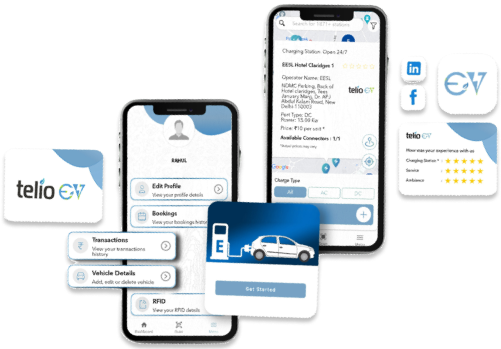The Growing Craze About the OCPI
The Growing Craze About the OCPI
Blog Article
Enhancing Electric Vehicle Charging with Advanced Management Software

The fast adoption of electric vehicles (EVs) has necessitated the advancement of efficient and easy to use charging solutions. Central to this evolution are Electric Vehicle Charging Management Software (EV CMS) and EV Charging Apps, which improve the charging procedure for both operators and users.
Understanding EV Charging Management Software
EV Charging Management Software acts as an extensive platform that makes it possible for Charge Point Operators (CPOs) and other stakeholders to monitor, manage, and optimize EV charging stations. Key functionalities include real-time monitoring of charging stations, user authentication, payment processing, and energy management. By incorporating these functions, the software ensures effective operation and boosts the user experience.
Key Features of EV Charging Management Software
1. Real-Time Monitoring and Control: Operators can oversee the status of charging stations, track energy consumption, and address problems without delay.
2. User Authentication and Access Control: The software manages user access, guaranteeing that just authorized individuals can make use of the charging facilities.
3. Payment Processing: It facilitates seamless deals, supporting numerous payment approaches to cater to diverse user preferences.
4. Energy Management: By optimizing energy circulation, the software lowers functional expenses and supports grid stability.
5. Reporting and Analytics: Comprehensive data analysis aids in informed decision-making and strategic planning for network growth.
The Role of EV Charging Apps
EV Charging Apps are developed to supply EV owners with hassle-free access to charging facilities. These applications use functions such as finding nearby charging stations, real-time availability updates, navigation assistance, and remote monitoring of charging sessions. By enhancing accessibility and user engagement, these apps play an essential role in promoting the adoption of electric vehicles.
Integration with Open Charge Point Interface (OCPI)
The Open Charge Point Interface (OCPI) is a standardized protocol that facilitates interoperability between various EV charging networks. Combination with OCPI permits smooth roaming, allowing users to gain access to several charging networks with a single account. This interoperability improves user convenience and broadens the availability of charging facilities.
Advantages of Implementing Advanced Charging Solutions
- Enhanced User Experience: User-friendly interfaces and dependable services increase customer satisfaction and commitment.
- Operational Efficiency: Automation and real-time tracking minimize manual intervention, reducing operational expenses.
- Scalability: Advanced software solutions support the growth of charging networks to satisfy growing demand.
- Revenue Generation: Flexible rates models and effective payment processing open new income streams for operators.
Conclusion
The integration of EV Charging Management Software and user-centric EV Charging Apps is essential ahead of time the electric vehicle ecosystem. These innovations not just improve operations for service providers however likewise considerably enhance the charging experience for users. As the EV market continues to grow, the adoption of such innovative solutions will be instrumental in meeting the increasing need for EV Charging Management Software efficient and available charging facilities. Report this page